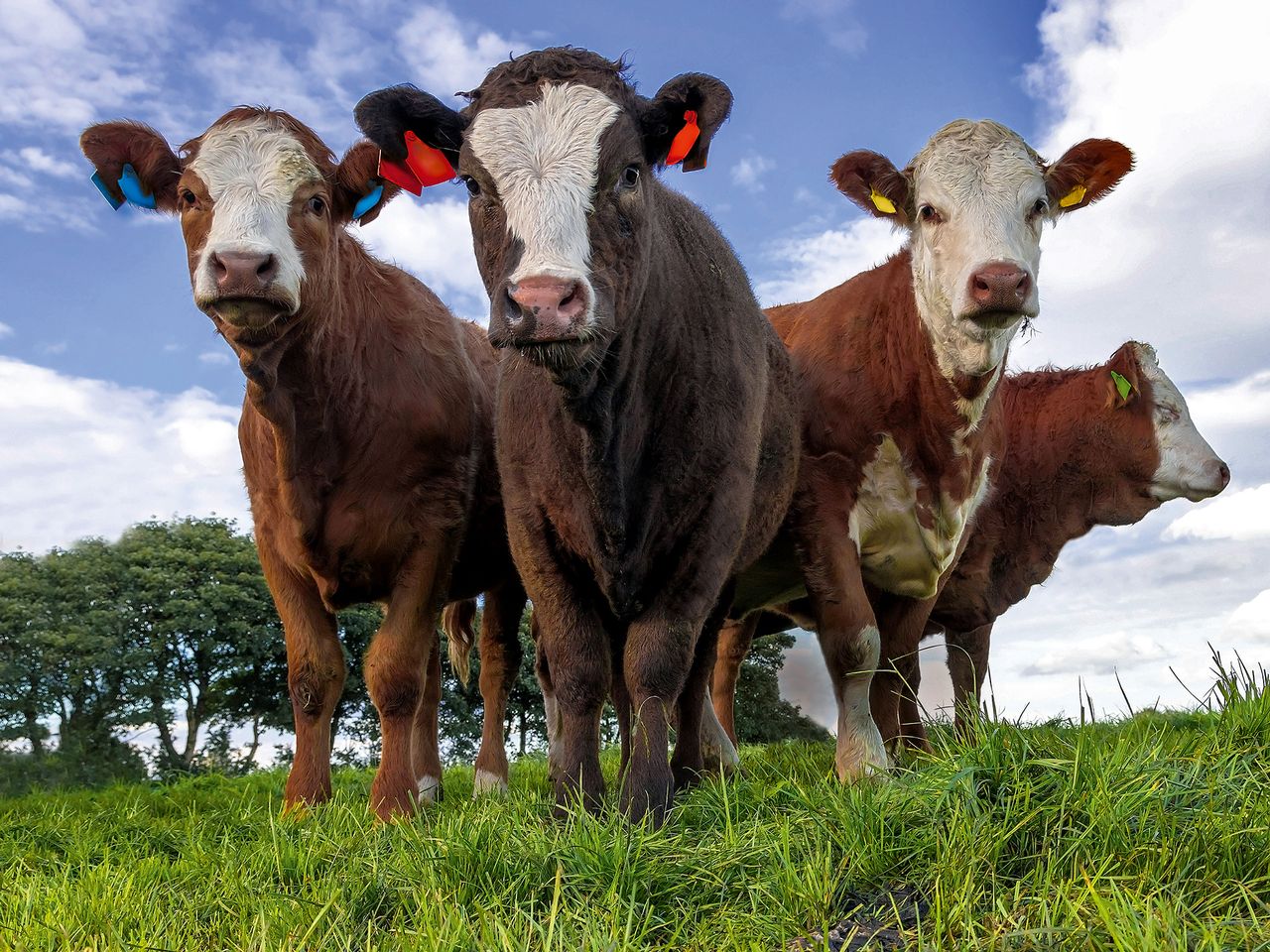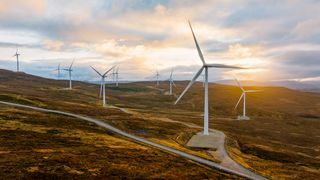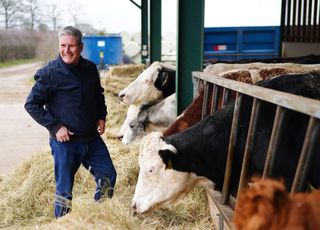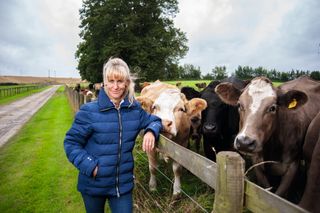The key countryside issues in the 2024 general election — and what all the main parties say about them
Promises, promises... With a week to go to the General Election, we compare and contrast the party manifestos on some of the issues that affect rural life. Kate Green reports.


Prime Minister Rishi Sunak surprised everyone bar a few souls within his inner circle as he declared a July 4th general election a few weeks ago. The time that's passed since then has allowed all the main parties to get their policies straight — not least what they would do to the countryside, farming and the environment. We've pulled out their key pledges in each area and have laid them out here.
NB This piece appears in the June 26, 2024 issue of Country Life — see what else is inside.
Farming and food
Labour
Half of public-sector food to be locally produced or certified to higher environ-mental standards; work on measures to eradicate bovine TB and end badger cull.
Conservatives
Increase farming budget by £1 billion, with legally binding target to enhance food security; 50% of public-sector food expenditure to be on local food with high environmental standards; fast-track planning permission for farm infrastructure; invest in technology, such as for fertilisers and vertical farming; move away from reliance on migrant labour; stick up for British farmers in trade deals; tackle live-stock worrying; champion the fishing sector.
Liberal Democrats
Sign up for the Country Life Newsletter
Exquisite houses, the beauty of Nature, and how to get the most from your life, straight to your inbox.
Re-negotiate Australia and New Zealand trade deal or pull out if same standards cannot be achieved; ban bottom trawling in marine protected areas; strengthen Groceries Code Adjudicator; introduce robust food labelling; empower local authorities to monitor food production; outlaw sales of food that is illegal here; pass a new Animal Welfare Bill; invest in vaccines against bovine TB; ban caged hens; match EU rules on preventative use of antibiotics; reward farmers for reducing use of harmful chemicals.
Green Party
Triple financial support to farmers for transition to Nature-friendly farming; farm payments to be linked to reduced use of chemicals; schools to teach growing and preparing food. End factory farming, cages and routine use of antibiotics.
Reform
Increase the farming budget to £3 billion with a focus on smaller farms, keeping farmland in use and encouraging younger people; scrap climate-related farming subsidies and bring back direct payments. Stop supermarket price fixing; give tax breaks to smaller food producers and abattoirs; ensure taxpayer-funded bodies source 75% of food from UK; end automatic fishing access to UK waters.
Environment
Labour
Create nine new National River Walks and three new National Forests (in England); plant millions of trees and expand wetlands and peatlands; put failing water companies under special measures and block bonus payments; create a Clean Power Alliance of countries.
Conservatives
Natural England and Environment Agency to have increased accountability; invest water-company fines in river-restoration projects; legislate to tackle illegal deforestation; designate an 11th national park; support disadvantaged children in accessing green spaces; work with landowners and charities to open up more countryside access; crack down on fly-tipping; develop the deposit-return scheme.
Liberal Democrats
Introduce sewage tax on water-company profits; ensure storm overflows only function in exceptional circumstances; set legally binding targets to prevent sewage dump-ing by 2030; give local environmental groups places on water-company boards; introduce ‘blue corridor’ programme for waterways and new ‘blue flag’ standards; require transparency from large businesses about Nature plans; identify a Wild Belt; new developments to result in 100% net gain for biodiversity; intro-duce deposit-return scheme; end plastic waste exports by 2030; eliminate non-recyclable single-use plastics in three years; ban heather burning; protect temperate forest; tackle greenwashing through accredited Blue Carbon and Soils Carbon Standards; support farmers to reduce pollution of waterways.
Green Party
Cancel fossil-fuel licences; remove oil and gas subsidies; phase out nuclear energy; put water companies into public ownership.
Reform
Scrap net zero and the annual £10 billion of renewable-energy subsidies.

Energy
Labour
Work with the private sector to double onshore wind, triple solar power and quadru-ple offshore wind by 2030; increase nuclear-power plants and get Hinkley Point C over the line; maintain reserve of gas power stations and North Sea oil licences; no new coal licences; ban fracking; create Great British Energy, a publicly owned company; invest an extra £6.6 billion into upgrading home heating.
Conservatives
Protect the best agricultural land from solar panels; move to a presumption of underground cabling instead of overhead pylons; reduce green levies; create new gas power stations; treble offshore wind capacity; build the first two carbon-capture and storage clusters; scale up nuclear power; invest £1.1 billion into the Green Industries Growth Accelerator; build a new gigawatt power plant at Wylfa, North Wales; reward energy firms that invest in disadvantaged places; reduce competition with less-green nations through carbon pricing; charge the Climate Change Committee with factoring in household costs.
Liberal Democrats
Restore the UK’s role as a global leader on climate change and show leadership on Paris Agreement; launch emergency Home Energy Upgrade programme, delivered by local authorities and free for low-income households; new homes to be built to a zero-carbon standard, with solar panels; landlords obliged to upgrade energy efficiency to at least EPC C by 2028; windfall tax on super-profits of oil and gas producers/traders; remove restrictions on new solar and wind power and support investment in tidal and wave power; ban new coal mines; end fossil-fuel subsidies at the same time as ensuring a fair transition; work with other nations in renewable energy and electricity interconnectors; new cars and vans to be zero-emission from 2030; electrify railways.
Green Party
Local-authority-led programme to insulate homes; £29 billion to insulate homes to an EPC B standard or above; £9 billion for low-carbon heating systems; introduce carbon tax; wind to provide 70% of UK electricity by 2030; communities to own energy sources.
Reform
Fast-track North Sea gas and oil licences and grant shale-gas licences on test sites for two years.
Rural living
Labour
Change planning regime to forge ahead with new roads, railways and reservoirs; accelerate roll-out of electric-car charging points; empower local communities to franchise bus services and lift ban on municipal ownership; strengthen Post Office network, develop banking hubs and reinvigorate the high street; prioritise brownfield sites for building at the same time as taking a more strategic approach to the Green Belt; ban trail hunting; train thousands more GPs, bring back the family doctor and trial neighbourhood health centres.
Conservatives
Deliver 1.6 million homes, as well as protecting the countryside and Green Belt; cover populated areas with ‘standalone’ 5G mobile connectivity at the same time as developing 6G; maintain Brexit Pubs Guarantee on lower beer duty; encourage dentists to rural communities through ‘golden hellos’; launch Seaside Heritage Fund; continue Royal Mail six-day postal delivery; invest £36 billion in local roads, rail and buses, including £8.3 billion on potholes and resurfacing roads funded by HS2 cancellation; rail upgrades in the South-West, Cumbria and East Anglia; reopen Beeching lines; extend £2 bus-fare cap.
Liberal Democrats
Invest in rural and coastal infrastructure, including abattoirs; decentralise decision-making and appoint a cross-departmental Minister for Rural Communities; encourage post offices to become community banking and government hubs and keep DVLA services; empower local authorities to protect pubs and community farms; restore bus routes; establish fund to sustain rural GP services; expand Rural Fuel Duty Relief.
Green Party
New English Right to Roam Act; set aside 30% of land and seas. Introduce Rights of Nature Act; ban trail hunting; end the badger cull; create Commission on Animal Protection.
Reform
Limit Natural England’s powers. Protect country sports.

Sir Keir Starmer: 'I want everyone in the countryside to know that I will roll up my sleeves and restore respect'
We invited Sir Keir Starmer, Leader of the Opposition, to set out the Labour Party's ideas for the countryside.

Credit: Lawrence Looi/NFU
Minette Batters: We need to trade on a level playing field
After six years leading Britain's largest farming union, Minette Batters talks life after the NFU and why MPs of all
-
 How to make a gloomy city garden into a haven of colour and nature
How to make a gloomy city garden into a haven of colour and natureTiffany Daneff discovers how to transform a typically dark London back garden into a light-filled green haven that is always in use. Photographs by Clive Nichols.
By Tiffany Daneff Published
-
 The world's hairiest animal, Saturday Night Fever and winning the lottery twice: Country Life Quiz of the Day 21 February 2025
The world's hairiest animal, Saturday Night Fever and winning the lottery twice: Country Life Quiz of the Day 21 February 2025Have a stab at our Quiz of the Day. Good luck!
By Toby Keel Published